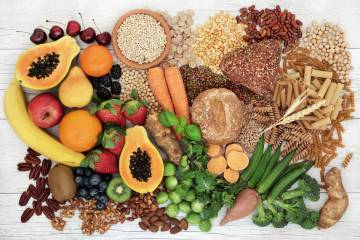One thing a cardiologist adds to almost every meal
According to the American Heart Association, sticking to a balanced, nutrient-rich diet and exercise regimen can protect your heart and reduce the risk of heart disease. While it’s not always the case, food can be medicinal, and eating the right foods can certainly help with heart health maintenance.
There’s one type of food, in particular, that cardiologists say can be helpful in improving overall heart health.
One key to heart health
When it comes to sticking to a heart-healthy diet, Dr. Christopher Davis, chief cardiologist at Humann, says you can’t go wrong with leafy greens.
“Leafy greens are particularly beneficial for cardiovascular health given their dietary nitrate content, which can improve the elasticity of the vessels by supporting nitric oxide production,” he says. “Nitric oxide relaxes blood vessels, supports healthy blood pressure, improves circulation and protects against arterial stiffness.”
As we age, our ability to make nitric oxide declines, so supporting this production through diet is one of the easiest and most effective ways to maintain cardiovascular function and longevity, Davis adds.
Another helpful addition
Aside from leafy greens, Dr. Jayne Morgan, cardiologist and vice president of medical affairs for Hello Heart, recommends adding fiber, especially soluble fiber, to your meals.
“Soluble supports the lowering of LDL (bad cholesterol), helps to regulate blood sugar, and helps to support a healthy blood pressure as well as healthy gut bacteria,” she explains.
When thinking about how to add this in at mealtime, soluble fiber can be found in flax seeds, chia seeds, beans and lentils, which can easily be added to soups or salads.
Food to avoid
Now that you know what cardiologists add to almost every meal, here’s what they suggest steering clear of when it comes to maintaining cardiac health.
For starters, you’ll want to limit your consumption of processed meats, whether that’s bacon, sausage, hot dogs or even deli meats.
“These meats are high in sodium (salt), saturated fats and preservatives (nitrates/nitrites) and are linked to increases in blood pressure, cholesterol and chronic inflammation in the body,” Morgan says.
Aside from hot dogs, you may also want to think twice when you go to grab your next sweet treat.
“Margarine sticks, pastries and cookies are usually prepared with trans fat and hydrogenated oils, which can raise your bad cholesterol (LDL) and lower your good cholesterol (HDL),” she adds.
Speaking of sweet treats, it’s worth keeping an eye on your sugary beverage consumption as well, from frappuccinos to sodas.
“Soft drinks and high fructose corn syrup rapidly raise blood glucose, which over time contributes to insulin resistance, high triglycerides, and increased risk of metabolic and cardiovascular disease, so best to stay away from sugary drinks,” Davis says.
At the end of the day, it’s not one food that will drastically improve your overall cardiac health, but a myriad of lifestyle factors — including diet, exercise and stress management — that can help.


















